#Developmental Challenges
Explore tagged Tumblr posts
Text
Applied Behavior Analysis (ABA) Therapy is a science-based approach to understanding and improving behaviors that impact daily life. It focuses on teaching meaningful skills and reducing behaviors that interfere with a person’s quality of life. ABA therapy in Florida has become a trusted option for individuals with autism and other developmental challenges, offering a personalized and data-driven approach to meet each person’s needs effectively.
1 note
·
View note
Text
Healthcare providers in Virginia play a pivotal role in implementing early intervention strategies. These professionals offer a range of services designed to meet the unique needs of each individual, providing support that evolves as the person grows and their needs change. By working closely with families, healthcare providers help to create a comprehensive care plan that supports both the individual and their family, ensuring that everyone involved has the tools and resources needed for success.
0 notes
Text
Nurturing Potential: Understanding Down Syndrome

Down syndrome, an intellectual and developmental disability in Northfield, New Jersey, affects individuals in unique ways, yet with proper understanding and support, their potential knows no bounds. Within our developmental disabilities program, we strive to foster an inclusive environment where individuals with Down syndrome thrive.
Learn More: https://www.adventurementalhealth.com/nurturing-potential-understanding-down-syndrome
0 notes
Text
all fandoms walk a notoriously fine line with trauma survivors and i feel like johnny cade is a good example of that. specifically, the often-seen portrayals of traumatized characters in ways that either romanticize their experiences or completely ignore their experiences (the latter of which is often done to favor another character’s journey).
i feel like the outsiders fandom (book, movie, and musical are lumped together here) at times leans heavily into the second one (minimization of trauma). now. i understand the fandom reversal of johnny’s role as being like. Not Innocent (and while i partially agree and think it’s a based take sometimes) i feel like some people do kind of turn him into a character he’s not by instilling a kind of confidence in him that he never had the opportunity to get. people tend to brush past the fact that he is, canonically, by far the quietest of the gang and RARELY talks. he is also, quote, “the gang’s pet.” (while pony IS an unreliable narrator, many of his descriptions of johnny, especially toward the beginning, are just descriptions of his physical reactions to his surroundings as well as past events like johnny getting jumped.)
He gets nervous around strangers. he’s hyper vigilant—two-bit surprises him at the drive-in and he pretty much has a panic attack. he’s 16 and has been borderline homeless for years. he has ptsd from a life of simultaneous abuse and neglect. he’s afraid to take up space because his life is so inconsistent he never knows what his existence will be met with—will it be ignored completely, or will it be met with an unforgiving hand? so he listens, and he watches, and he does hang around dally and the gang, but a big part of who he is comes from his upbringing - he tries as hard as possible to Not be noticed at all, because when he does, it’s bad. i think he would like to be a more confident, “normal” version of himself, but that person isn’t someone who he ever really had a chance to be.
#not to mention how he’s likely developmentally behind in areas#BECAUSE OF how hard his life has been.#cases in point: his suicidality & implied learning challenges & social difficulty#Johnny cade you mean the world to me.#sometimes a guy can be so emotionally repressed#johnny cade#the outsiders musical#the outsiders#the outsiders broadway#the outsiders 1983#Is this a hot take i don’t think so#I’m normal
118 notes
·
View notes
Text
what’s dysgeographica?
dysgeographica, also known as developmental topographical disorientation, is a form of neurodivergence in which a person has difficulty creating mental maps, orienting themselves or a location in space, and navigating from place to place.
some common symptoms of dysgeographica include:
getting lost easily, even in one's own neighborhood or other extremely familiar locations
difficulty memorizing even simple or frequently traveled routes
no internal compass (i.e. no sense of which way one is facing or if one has been turned around)
no sense of where familiar locations are in relation to each other
difficulty making a mental map of a building or area's layout
uncertainty about which direction a location is in, even if one knows how to get there
complete reliance on GPS navigation while traveling
rigidly following one familiar route to get somewhere, even if a better route may be available
anxiety around driving a car due to lack of confidence in one's ability to navigate as the driver
is dysgeographica just a poor sense of direction?
while many people struggle to read maps or navigate unfamiliar places, being dysgeographic means struggling with very familiar locations as well as unfamiliar ones, potentially getting lost in one's own neighborhood or workplace.
additionally, while someone who just has a poor sense of direction will generally still be able to move through the world and perform daily life activities with little to no added difficulty or distress, dysgeographic people will often find that their difficulty navigating makes day-to-day functioning more difficult (e.g. being late to work regularly due to getting lost, not being able to drive a car or travel alone).
is dysgeographica part of adhd/autism/etc?
it is possible to have dysgeographica with comorbid autism, adhd, dyslexia, dyscalculia, dyspraxia, etc. it's also possible to experience dysgeographic symptoms as secondary to one of those (e.g. having trouble navigating due to adhd inattention).
that being said, dysgeographica is not inherently connected to any other form of neurodivergence, and can be the only neurodivergence someone has. you don't need to be diagnosed with anything else to have dysgeographica.
is dysgeographica a disability?
yes, dysgeographica is a neurodevelopmental disability.
it is not, however, recognized as such by the DSM or ICD, despite research showing evidence of its existence and the impact it can have on people's lives. that doesn’t mean it’s not a real disability — what it does mean is that it can be very difficult (if not impossible) to get accommodations.
while dysgeographica would most likely not be categorized as a specific learning disability, it does have some overlap with dyscalculia and dyslexia, and can be considered a “cousin” of the specific learning disabilities much in the same way as dyspraxia.
#resource#dysgeographica#actually dysgeographic#developmental topographical disorientation#neurodivergent#actually neurodivergent#neurodivergent community#neurodiversity#neuroqueer#neurospicy#developmentally disabled#developmental disabilities#neurodevelopmental disorders#disability education#disability awareness#disability community#disability#directionally challenged#sense of direction
274 notes
·
View notes
Text
The Reality of Meltdowns in Medium Support Needs Autistics
Disclaimer: This is simply MY experiences of having meltdowns. This is not the same for those with Medium Support Needs.
When i was a child, i had very frequent and violent meltdowns. They were triggered by the most smallest things, and that i was making a mountain out of a molehill.
Those meltdowns included me often being sent home, suspended, or just being told to stay at home for the next day because they could see that i needed a break. This happened a lot during elementary school.
Because those meltdowns involved me screaming, throwing things, hitting, slapping, kicking and sometimes getting into fights with teachers and other kids (These were rare though). And because of how violent i was, i had to be secluded most of the day when i was younger.
And i also had an 1;1 EA to try and help me to regulate myself, or by helping me learn an alternate behaviour to get what i wanted. That caused me to have to go to a occupational therapist to figure out what my sensory preferences and dislikes are because not even me could figure it out and could even attempt to help myself out of a sensory meltdown.
Once, i slapped another kid during my rumble stage of my meltdown and i of course got sent home for that. They also could see that i was distressed because i was with another EA whom i barely knew and that was change that i really hated. After that day, i was bullied by her and her friends and others during daycare hours after school. Sometimes even during recesses as well.
I remember one time during a meltdown, i got locked inside the principal's office while another EA spoke to the janitor, calling me a monster. Because i was pretty much "seeing red", as cliche as that sounds, but that's how it went when i was a child. It might even be the same nowadays, i "see red" and am unable to control myself at all anymore during the peak period.
I have gotten better since then, but i still have somewhat violent and somewhat still frequent meltdowns that get me sent home. I sometimes slap and hit, but mostly it's just noncompliance that gets me sent home. And i'm glad because that means i don't have any challenging behaviour anymore that bars me from co operative education sooner or later if i continue to manage good self regulation skills this year.
However, sometimes it's like i "slip" and i still have a pretty aggressive meltdown. Sometimes, i still slap, hit, kick and now even punch people. Sometimes, i also hit and self harm myself by hitting myself in the head and almost actually biting my arm.
Since i'm almost an adult, in the real world, no one will try to de escalate me, they would immediately call the police because i would probably try to hurt them. And knowing that, my teachers are trying to help me not have these meltdowns anymore, but try to make me have safe hands during them to avoid police incidents and the police being called.
And i understand why because Black and Brown autistic people are more likely to get hurt by police. (I haven't researched by the recent shooting reminds me) And even neurotypical BIPOC people are also in harm of getting hurt by police as well.
#medium support needs#msn autism#msn autistic#autism#actually autistic#level 2 autism#developmental disability#dyscalculia#learning disability#dysgraphia#autism stuff#autism post#autism posting#meltdowns#autistic meltdown#autistic meltdowns#challenging behaviours#autizzy#<<<not sure if i can use this tag ngl
11 notes
·
View notes
Text
professional opinion is both of those lists are very white and maybe not VERY straight but very mainstream in a way that suggests a boringness of artistic taste I typically associate with straight people
#like did it hit a couple of top flicks on a stock gay checklist sure#but there's no john waters to wong foo paris is burning etc and instead there's... multiple children's animated features#i feel like it's an obvious thing to say about this website but it is not a platform where people seekbto challenge themselves artistically#or in an age and developmentally appropriate way#if both those lists were a movie theater's summer multiplex offerings for like a $2 matinee?#sorry to say it but you still wouldn't see me for most of these screenings. hell not even for free if i'm being honest.
9 notes
·
View notes
Text
ppl will be like "I'm not being ableist" and then proceed to have the most ableist take you've ever read
#it's always heavy on the ableist language too ��#ableism#fandom ableism#disability#People stop being ableist towards people with developmental and intellectual disabilities specifically challenge
11 notes
·
View notes
Text

I saw this post in an autism Tumblr community. I wanted to answer in a post because it's better for me than in a comment. I asked the person if I'm allowed to do it. The person allowed it, but I should censor the name and the pfp. So, now I make this post.
I'm a 17 years old boy with MSN (moderatesupportneeds) autism. I will turn 18 on April the 5th.
I was also scared of becoming an adult. It started when I was 11-12 years old. I didn't felt like other tweens, and I was scared that people would be more judging about that I like to play with toys when I'm an adult. That feeling became more and more until 15 - 16.
I'm officially severely disabled and in need of care since I'm 9 years old which was shortly after my autism diagnosis. My care needs were and also are significantly more than it would be normal for my age. I also have a lot of challenging behavior which also makes my official care needs categorization higher. Until 12 I absolutely don't realized how severely disabled I was. With 12 I realized it a little bit. With 15 I realized it fully but I tried to forget it in many phases because it was hard to accept that I never will be able to life on my own or work a job. Having issues to accept my disability also was a reason why I was scared to become an adult. I was an age dreamer at that time. It was helpful to imagine I would be 5 years old because my care needs would be normal for that age.
With nearly 17 and 17, I learned to accept my severe disability. Being an adult also became just a number (the number 18) for me and not a behavior or something similar.
Now I'm not scared of becoming and adult anymore. I life in a care home for disabled adults (and 16-17 year olds) since April 25th, 2024. My mom visits me often. Every few weeks, she goes to a toy store with me. I buy fidgettoys and also other toys. I don't really think much about what others in the toy store think about me. My mom also told me around 1 year ago that most people who see me in stores can see that I have a developmental disability. I know that not many things will change when I turn 18. I will need a legal guardian in some areas (in the Austrian system of legal guardianship people don't have a legion guardian in all areas when they only need one in some areas unless they say they want it in all areas). I'm even happy to become an adult because when I'm 18 and have an extreme meltdown and need to get brought the the psychward by the police it won't be the paediatric psychward anymore and in adult psychwards you are allowed to keep your phone. Many people who were in paediatric and adult psychwards also say their experience in adult psychwards was mostly better. So now 18 is just a number for me without much change.
I'm not really an age dreamer anymore I play with toys when I like to but I don't age dream anymore or really really seldom but I definitely think people should age dream / age regress if it's helpful for them.
I don't know the support needs of the person who wrote this text, but because the community isn't especially for higher support needs autistics, the person probably has low support needs compared to other autistics. (Sorry if it's wrong) I know that many autistics feel the way described the text, but I luckily don't feel this way anymore. I told my story in that post, but I know the experience of becoming an adult of lower support needs autistics is different.
#autism#msnautism#medium support needs#highersupportneedsautism#moderate support needs#mediumsupportneeds#msn autistic#disability#care home#becoming an adult#legal guardianship#autistic teen#disabled teen#developmentally disabled#toy store#toys#age regressor#age dreamer#care needs#severely disabled#incapable of work#challenging behavior#self acceptance#disability awareness#autism awareness#growing up autistic#growing up disabled#becoming an autistic adult#becoming a disabled adult#fear of becoming an adult
6 notes
·
View notes
Text
When Everyone Else’s Kids Are Flying and Yours Is Still Learning to Crawl
I don’t talk about it often, but today I need to. There are moments when I watch other children run, talk in full sentences, or show off their new dance moves, and something inside me just aches. Not in a jealous way, not even in a bitter way. It’s more like a quiet ache in the back of my chest. Like grief and guilt holding hands. My child is developmentally delayed. I say that now with a…
#child development challenges#comparison in parenting#developmental delays#emotional parenting#milestone struggles#motherhood journey#parenting emotions#parenting grief#parenting support#parenting with empathy#raising a delayed child#raising children differently#real motherhood stories#slow development#special needs parenting
0 notes
Text
Democrats in the U.S. Senate on Monday evening blocked a Republican-led attempt to enshrine discrimination against transgender athletes in federal law. The lawmakers rejected the Protection of Women and Girls in Sports Act. The bill, part of a more considerable conservative effort to roll back LGBTQ+ rights, failed to garner enough votes needed to advance.
After senators voted to confirm President Donald Trump's pick for education secretary, professional wrestling magnate Linda McMahon, the upper chamber considered moving forward with the anti-trans legislation. The bill was stopped by a cloture vote, which is a procedural motion that requires 60 votes to end debate and move forward. The vote was 51 to 45.
The legislation, introduced in the House of Representatives by Florida GOP Rep. Greg Steube and passed by Republicans earlier this year with the support of two Democrats, sought to rewrite Title IX protections by defining sex in athletics solely based on “reproductive biology and genetics at birth.” If enacted, the bill would have effectively barred transgender women and girls from participating in federally funded school and college sports.
The bill also called for federal studies on the impact of transgender inclusion in women’s sports and potential “adverse psychological and developmental effects” on cisgender athletes. There is no evidence that transgender athletes are a danger to cisgender peers. While it did not mandate physical examinations to determine an athlete’s sex, critics warned that its enforcement could lead to intrusive scrutiny of all female athletes.
The bill’s failure comes amid a broader, coordinated effort by Republicans to legislate transgender people out of public life. Just last month, Trump signed an executive order titled “No Men in Women’s Sports." Trump used the signing ceremony as an opportunity to spew inflammatory rhetoric, falsely claiming that men have “invaded” women’s sports and that male athletes are “beating up and injuring” women—a claim that has been debunked time and time again.
Human Rights Campaign president Kelley Robinson applauded the Senate’s rejection of the bill, emphasizing the damaging impact of such policies. “Every child should have the opportunity to experience the simple joys of being young and making memories with their friends. But bills like these send the message that transgender kids don’t deserve the same opportunities to thrive as their peers simply because of who they are. And they are impossible to enforce without putting all kids at risk of invasive questions or physical examinations just because someone doesn’t look or dress like everyone else,” Robinson said in a statement to The Advocate.
Trump’s executive order, which threatened to strip federal funding from schools and colleges that failed to comply with his ban on transgender athletes, has already triggered legal challenges. Civil rights advocates and legal experts have pointed out that executive orders cannot override federal civil rights protections, including those under Title IX, and the order is expected to be tied up in court for months.
“We should want all of our kids to have the chance to be on a team, problem solve with others, learn valuable skills, and find places to belong,” Robinson said. “Thank you to the leaders who stood up today, pushed back against those playing politics with young people’s lives, and declared that ours should be a nation where every child feels valued.”
14K notes
·
View notes
Text
just watched dinner in america and um. i have not come out unscathed
#big big treat for the developmentally challenged girls such as myself#if i could tongue kiss a movie it would be this one
1 note
·
View note
Text
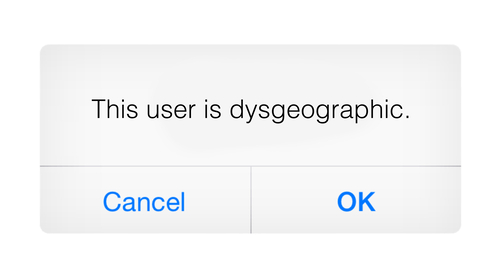
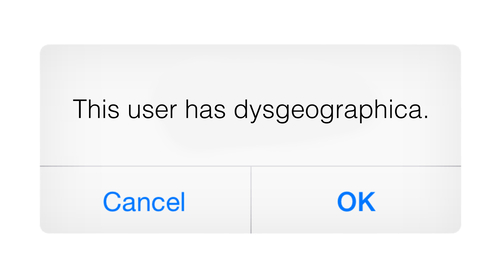
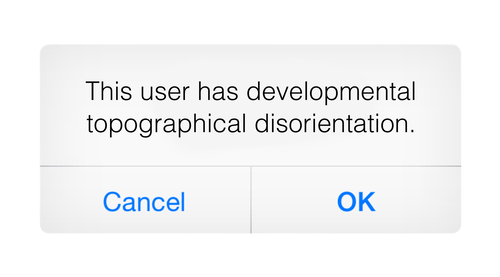

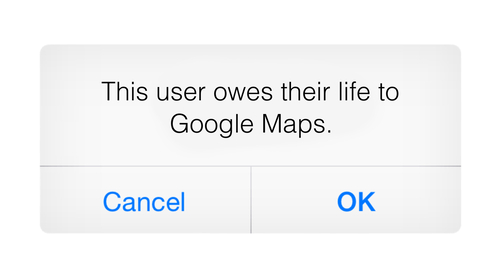


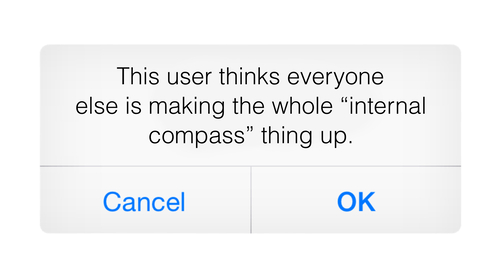
dysgeographica alert-style userboxes
#userbox#this user#dysgeographica#actually dysgeographic#developmental topographical disorientation#neurodivergent#neurodivergence#actually neurodivergent#neurodivergent community#neuroqueer#neurospicy#developmentally disabled#developmental disabilities#neurodevelopmental disorders#disability#actually disabled#disability community#directionally challenged#sense of direction
67 notes
·
View notes
Text
#Day care center for children with learning disabilities#Learning disability support for kids#Specialized day care for learning-disabled children#Inclusive day care services#Day care for neurodiverse children#Learning disability programs for kids#Day care for special needs children#Early intervention day care#Developmental day care for learning disabilities#Day care services for children with special needs#Learning disability care center#Best day care for children with learning challenges#Inclusive learning environment day care#Special education day care center#Day care for ADHD children#Autism-friendly day care#Supportive day care for learning differences#Day care for children with speech and language disorders#Cognitive development day care#Day care center for diverse learning abilities
0 notes
Text
Practical Advice for New Parents: Navigating the First Year with Confidence
Get essential guidance for the first year of parenthood, empowering you to face the challenges with assurance and cherish the precious moments. #NewParents #ParentingTips #ConfidenceInParenthood #FirstYearJourney
Embracing the Adventure of Parenthood The journey of parenthood is a remarkable adventure filled with joy, challenges, and countless unforgettable moments. For new parents, the first year can be a whirlwind of emotions and learning experiences. While it may seem daunting, with the right guidance and support, you can navigate this transformative period with confidence. In this blog post, we’ll…

View On WordPress
#Baby Health and Wellness#Babyproofing Your Home#Balancing Parenting and Work#Bonding with Your Baby#Celebrating Parenting Achievements#Cherishing Precious Moments with Your Baby#Coping with Sleep Deprivation#Encouraging Developmental Milestones#Establishing a Routine#Feeding and Sleep Schedules#Infant Development Milestones#Introducing Solid Foods#Learning from Challenges#Managing Parenting Stress#Navigating the First Year#Newborn Care Tips#Nurturing Emotional Attachment#Parenting Confidence#Parenting Together as a Team#Postpartum Self-Care#Practical Advice for New Parents#Seeking Support from Family and Friends#Trusting Your Parenting Instincts
0 notes
Text
Intellectual disability means having below-average capacity for intellectual functioning than the general public. It also manifests in having challenges with adaptive behavior.
0 notes